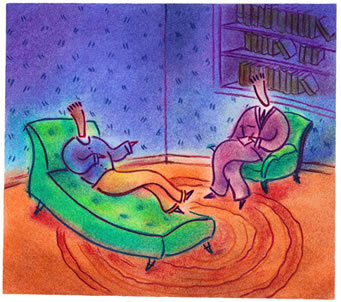
While we were dating, my husband, Jon, and I would joke that someday we would have the perfect child (and of course we did! Haha) because in some ways we are so different that we complement each other and fill in each other’s gaps. One of our major differences is that I am extremely people-oriented and social and he is a natural loner. I am forever dragging him to dinners with new friends (I recently asked him to do an impression of me…and he immediately launched into a peppy monologue that began: “Oh my gosh I met this amazing woman today! Her name is Alison and she is so smart and interesting and we have so much in common! You will love her! And it sounds like her husband is a lot like you so you two will hit it off…We’ll find out because I made plans for us to have dinner with them this weekend!”). Jon is almost always a good sport and he usually has a great time at these social outings. He is funny and sweet and people love him (again, of course!).
I just began reading the popular psychology book, “Party of One: The Loner’s Manifesto” by Anneli Rufus (given to me, appropriately, by my mother-in-law). The book posits that being a loner is a healthy—if not superior—state and that we live in a society that pathologizes “loner-ism”. After all, we have mental health diagnoses like Avoidant Personality Disorder and the typical image of a person with Major Depression is someone who withdraws socially, yet we don’t have an “Overly Social Personality Disorder” or worry about someone who is forever engaging with others.
Jon simply needs alone time (which can include me and our daughter) to retreat from the social world, decompress, and focus on independent activities like playing music and reading. While I have never stuck with a hobby besides reading (I have a whole trunk full of half-finished knitting projects), Jon has taught himself to play guitar, to cook and bake, to fix things and garden. He can entertain himself for hours; he reads books and writes jokes and notes to himself in the margins. He almost never gets bored or stir crazy, which I most certainly do after a few hours in the house.
Being a loner does not mean a person is lonely, depressed, or antisocial. It is simply a personality style, and a valuable one.
Are you a loner? Do you feel pressured to behave more socially than you would like?


